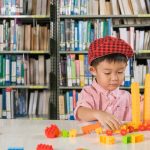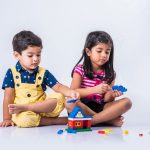Personal space, a concept often taken for granted, plays a crucial role in social interactions and relationships. Teaching children about personal space is an essential aspect of their social development, contributing to their ability to form healthy connections with others. In this article, we will delve into what personal space is, why it is important, and how parents and educators can help children understand and respect this vital aspect of interpersonal relationships.
What is Personal Space?
Personal space refers to the invisible, protective bubble around an individual, an area where they feel safe and comfortable. It is the physical and emotional distance we maintain between ourselves and others during social interactions. This concept is not only applicable to adults but is equally important for children as they navigate their way through social environments.
Understanding Personal Space
Children, in their formative years, are still learning about the world around them, including the intricacies of social interactions. Understanding personal space involves recognizing the boundaries that exist between individuals and respecting the physical and emotional comfort zones of others. It is essential for children to learn that everyone has their own personal space, and respecting these boundaries is crucial for building positive relationships.
Why is Personal Space Important?
The importance of personal space extends beyond mere etiquette; it contributes significantly to a child’s overall well-being and social development. Here are some key reasons why personal space matters:
- Respecting Autonomy:
- Building Healthy Relationships:
- Self-awareness and Empathy:
- Conflict Resolution:
- Social Confidence:
Teaching children about personal space instills the value of respecting autonomy. Everyone has the right to their own space and the freedom to decide who can enter it.
Understanding personal space is foundational to building healthy relationships. Children who grasp this concept are more likely to form positive connections with their peers, fostering empathy and cooperation.
Awareness of personal space cultivates self-awareness in children, helping them understand their own needs for space and recognise when others may need it too. This promotes empathy and consideration for others’ feelings.
A solid understanding of personal space can prevent conflicts. When children respect each other’s boundaries, misunderstandings and disagreements are less likely to arise.
Knowing how to navigate personal space boosts a child’s social confidence. They feel more comfortable in social settings, contributing to their overall social and emotional development.
Importance of Personal Space in Everyday Situations
Personal space is a dynamic concept that comes into play in various everyday situations. Here’s a look at how understanding personal space is crucial in different scenarios:
- School Environment:
- Playtime:
- Family Dynamics:
- Public Spaces:
In a bustling school environment, children interact with peers, teachers, and staff regularly. Understanding personal space helps create a positive atmosphere, reducing the likelihood of conflicts and promoting a conducive learning environment.
Play is an integral part of a child’s development. Whether it’s a game of tag or sharing toys, being aware of personal space ensures that playtime remains enjoyable for everyone involved.
Within the family, personal space is equally important. Teaching children to respect the space of their siblings and parents contributes to a harmonious household.
Navigating public spaces like parks, shops, and public transport requires an understanding of personal space. Teaching children to be mindful of others’ boundaries fosters good manners and consideration for fellow members of society.
How to Teach Children About Personal Space
Now that we understand the significance of personal space, let’s explore effective ways to teach children about it:
- Model Behaviour:
- Use Visual Aids:
- Role-playing:
- Establish Personal Boundaries:
- Storytelling:
- Positive Reinforcement:
Children learn by observing. Model respectful personal space behaviour by giving them examples in your interactions with others. Show them how to maintain a comfortable distance and ask for permission before entering someone else’s space.
Utilise visual aids such as diagrams or drawings to explain the concept of personal space. Visual representations can make it easier for children to grasp the idea and remember it in different situations.
Engage in role-playing activities where children can practice respecting personal space. This hands-on approach allows them to experience different scenarios and understand the impact of their actions.
Help children establish their own personal boundaries. Encourage them to communicate when they need space and teach them how to express their feelings when someone invades their personal space.
Share age-appropriate stories that highlight the importance of personal space. Use characters and situations that children can relate to, making the concept more tangible and relatable.
Reward positive behaviour related to personal space with praise or small rewards. Positive reinforcement encourages children to consistently practice respecting personal boundaries.
Expanding our exploration of personal space for children, it’s crucial to recognise that each child is unique, and their comfort zones may differ. Some children may be more reserved, requiring more extensive personal space, while others might be more outgoing and comfortable with closer interactions. It’s important for adults to be attuned to these individual differences and tailor their guidance accordingly.
Encouraging open communication is paramount. Establishing an environment where children feel safe expressing their feelings about personal space fosters a sense of agency and autonomy. This empowers them to articulate their needs, promoting a culture of mutual respect and understanding among peers. Furthermore, as children grow and social dynamics evolve, revisiting discussions about personal space ensures that they continue to navigate relationships with empathy and consideration for others.
In conclusion, teaching children about personal space is an integral part of their social development. By instilling an understanding of personal space, parents and educators contribute to the building of healthy relationships, conflict resolution skills, and overall social confidence in children. The importance of personal space is not confined to social etiquette; it is a foundational aspect of fostering empathy, respect, and self-awareness in the younger generation.
As we navigate the intricate world of child development, EuroKids is here to support you. At EuroKids, we understand the importance of holistic development in children. Our approach goes beyond academics, focusing on nurturing values that will shape children into well-rounded individuals. Join us in creating a positive and supportive environment for your child’s growth.















